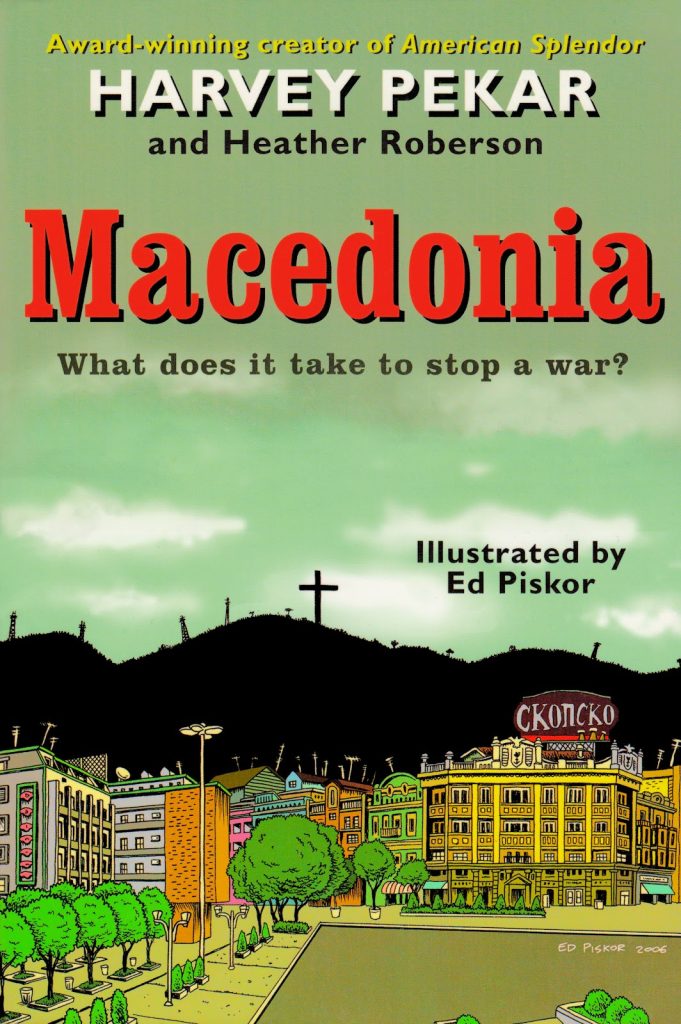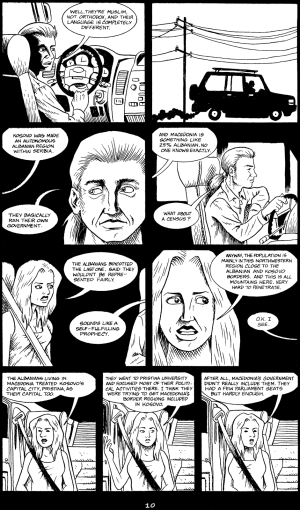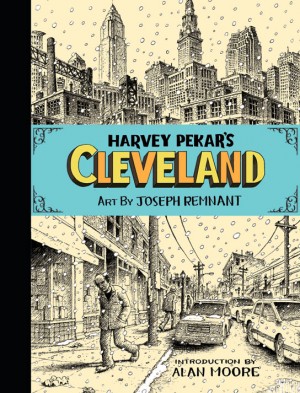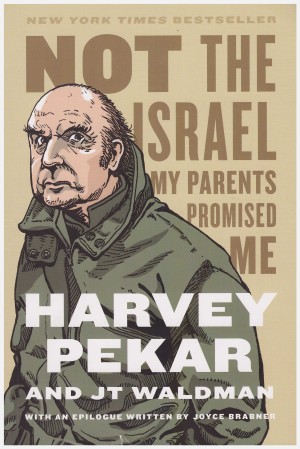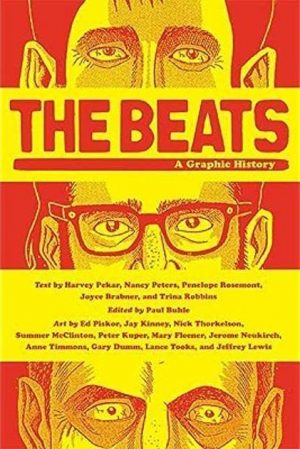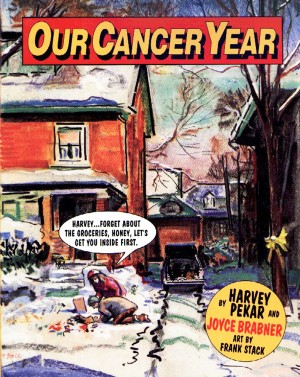Review by Ian Keogh
Macedonia opens with a long conversation between a student we later discover is co-author Heather Roberson, and an elderly professor. It concerns war and whether its preventable, or whether the worst of human nature will always prevail. The only example occurring to her where war was prevented is the small European state of Macedonia when what had been Yugoslavia since 1946 splintered in the 1990s. Explanations are forthcoming as she later meets her boyfriend. As per the sample art, even though broken down as simply as possible, this is an extremely complex situation with multiple vested interests.
In all, it takes the first thirty pages to describe the region’s wars, ethnic purges and compromises, by the end of which Ed Piskor has given up attempting to incorporate the information as comics, relying instead on illustrations and maps accompanying blocks of text. It all amounts to historical precedence being extremely valued in South Eastern Europe, with no end of conflicts over the centuries attempting to restore what’s seen as historical territory. This encompasses the broadest possible interpretation of land occupied at one time no matter how many centuries ago. The density of the background is almost certainly going to dissuade the casual reader, yet it’s nonetheless as concise a distillation as possible.
The remainder is Roberson’s experiences travelling to Macedonia, while her carrying out interviews and research there, broken down by Harvey Pekar in the style of his own recollections. She’s interested in discovering how Macedonia avoided war when United Nations peacekeeping troops left in 1999, and along the way there’s a sidebar about some male attitudes to women.
Roberson’s approach is very similar to that of Joe Sacco, referenced by Pekar before she starts her trip to Europe. She’ll go around, talk to ordinary people, find organisations with information, visit where some would warn her not to, and look behind the scenes instead of just accepting what she’s shown or told. It’s relatively early on that she leans of the Ombudsman organisation, which is separate from the judiciary, there to solve the problems of individuals, and given considerable power to achieve that. Among reforms instituted are percentage quotas of official organisations such as the police numbers equating to the percentage of the ethnic populations in any given area.
Macedonia is best when Roberson chats with more ordinary people and hears their opinions, which may or may not be valid, but are authentic rather than with a possible agenda, if sometimes misguided or plain wrong. As Roberson wades her way through academic and government reports Macedonia can be dry reading, broken down by Piskor as best he can to provide visual variety to extended conversations. As reportage it’s not as accessible as it might be, partly because Roberson doesn’t distil what’s necessary, but when it’s good it connects.
Roberson ends with an essay considering matters as they progressed to the time of publication in 2006.
